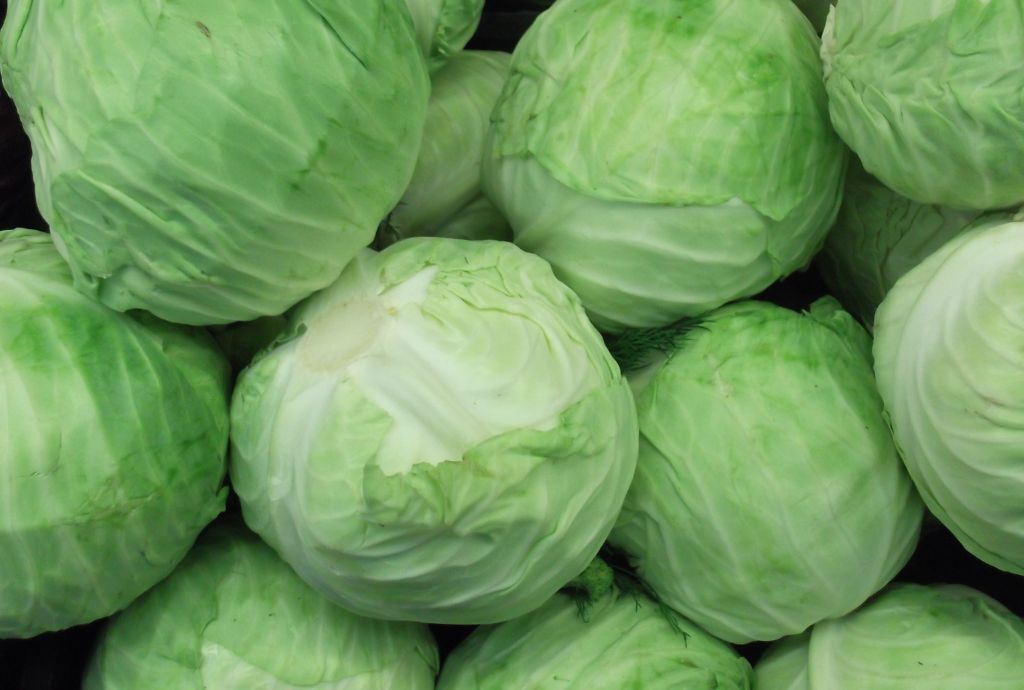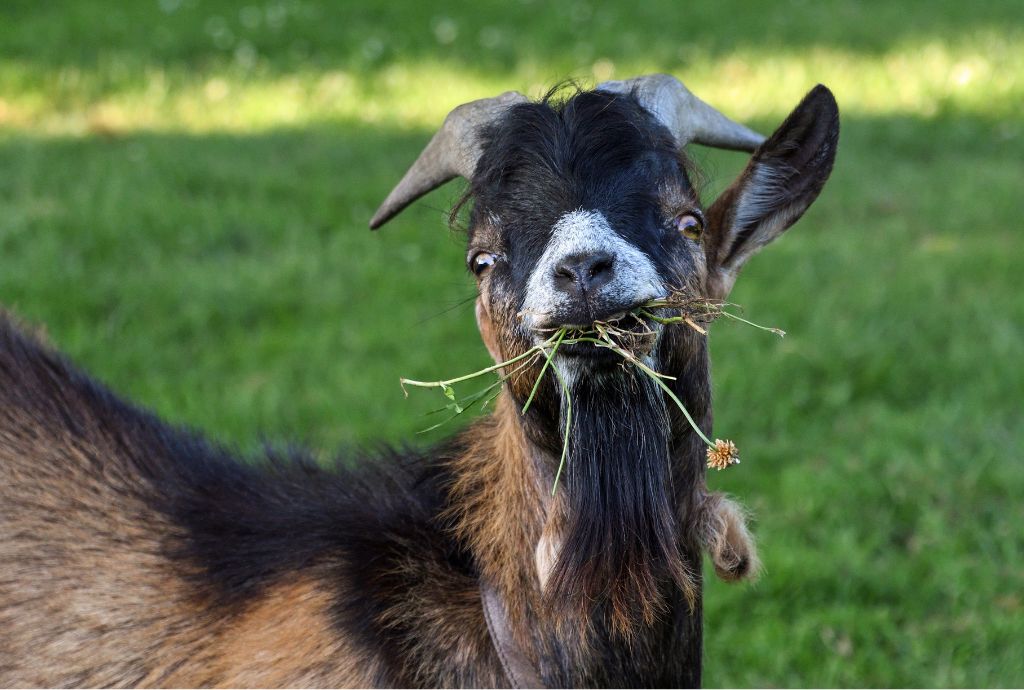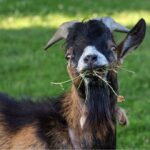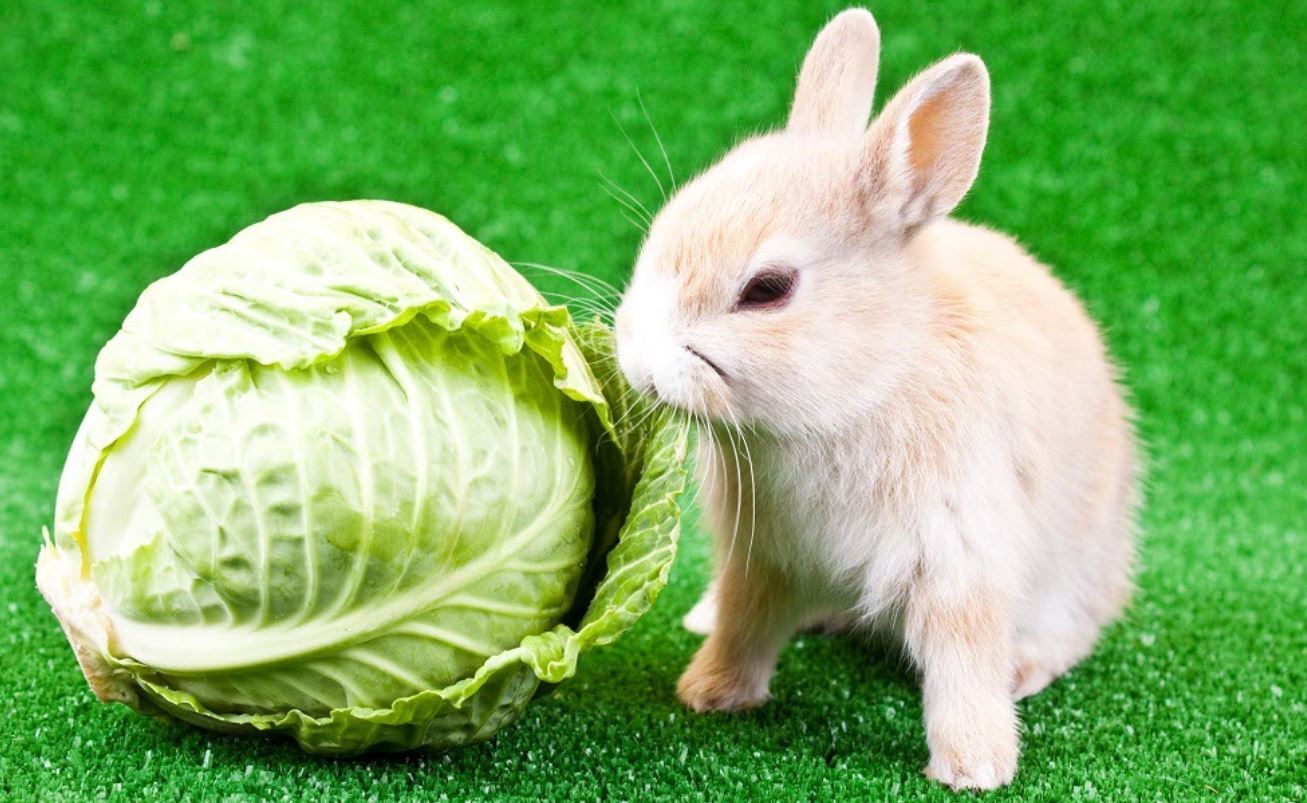
Goats are known for their versatile and robust digestive systems, allowing them to consume a wide variety of vegetation. However, many goat owners often wonder, “Can goats eat cabbage?” This is a valid question considering the importance of ensuring a balanced diet for these hardy animals. While goats can indeed eat cabbage, there are several factors to consider to ensure it benefits their health rather than causing any harm.
Feeding cabbage to goats can be a beneficial addition to their diet when done correctly. Cabbage is rich in vitamins and minerals, which can contribute to the overall health and well-being of your goats. However, moderation is key. Overfeeding cabbage can lead to digestive issues due to its high water content and potential for causing bloat. In this article, we will delve into the benefits and risks of feeding cabbage to goats, proper feeding practices, and tips on integrating cabbage into their diet.
Table of Contents
Nutritional Benefits of Cabbage for Goats
Cabbage is a highly nutritious vegetable that can offer numerous benefits to goats. It contains essential vitamins such as Vitamin C and Vitamin K, as well as important minerals like calcium and potassium. These nutrients play crucial roles in maintaining healthy bones, blood clotting, and overall immune system function in goats.
Vitamins and Minerals
The vitamin C found in cabbage helps boost the immune system of goats, making them more resistant to illnesses. Vitamin K, on the other hand, is vital for proper blood clotting, which is essential for healing and overall health. Calcium in cabbage supports strong bone development, particularly important for growing kids and lactating does.
Fiber and Digestive Health
Cabbage also provides a good amount of fiber, which is beneficial for the digestive system of goats. Fiber aids in proper digestion and helps prevent issues such as constipation. However, it’s important to introduce cabbage gradually into their diet to avoid digestive upset, as sudden changes can cause digestive disturbances.
Risks of Feeding Cabbage to Goats
While cabbage offers several health benefits, it’s crucial to be aware of the potential risks associated with feeding it to goats. Overconsumption can lead to gastrointestinal issues and other health problems.
Risk of Bloat
One of the primary concerns when feeding cabbage to goats is the risk of bloat. Cabbage is high in water content and can produce gas during digestion, leading to bloating. Bloat is a serious condition in goats that can be life-threatening if not treated promptly. To minimize this risk, cabbage should be fed in small amounts and as part of a varied diet.
Oxalates and Kidney Health
Cabbage contains oxalates, which can bind with calcium and potentially lead to the formation of kidney stones in goats if consumed in large quantities. This is particularly a concern for goats that are prone to urinary calculi. Ensuring that cabbage is only a minor component of their diet can help mitigate this risk.
How to Safely Introduce Cabbage into a Goat’s Diet
When introducing cabbage into your goats’ diet, it is important to do so gradually. Start with small amounts to see how your goats react to the new food. Observe them closely for any signs of digestive upset or discomfort.
Proper Portion Sizes
Begin by offering small, chopped pieces of cabbage mixed with their regular feed. This can help them acclimate to the new food without overwhelming their digestive systems. Over time, you can gradually increase the amount if your goats show no adverse reactions.
Balanced Diet Integration
Cabbage should not replace the primary components of a goat’s diet, such as hay and forage. Instead, it should be considered a supplementary treat that adds variety and additional nutrients. Ensure that your goats have constant access to fresh water and continue to receive their staple foods to maintain a balanced diet.
Best Practices for Feeding Cabbage to Goats
To ensure that feeding cabbage to goats is beneficial and safe, following certain best practices is essential. These practices help prevent potential health issues and ensure that your goats receive a balanced and nutritious diet.
Gradual Introduction and Observation
When introducing any new food, including cabbage, to your goats, it is crucial to do so gradually. Start with small portions and monitor your goats for any signs of discomfort or digestive upset. This gradual approach allows their digestive systems to adjust and helps you identify any potential issues early on.
Mixing with Other Foods
To further reduce the risk of digestive problems, mix cabbage with other foods that your goats are already accustomed to eating. This not only helps in balancing their diet but also makes it easier for them to digest the new food. Combining cabbage with hay or other forages can help mitigate the risk of bloat and ensure a more balanced nutrient intake.
Moderation is Key
While cabbage can be a healthy addition to a goat’s diet, it should only be fed in moderation. Overfeeding cabbage can lead to gastrointestinal issues and nutritional imbalances. As a general rule, cabbage should make up no more than 10% of your goat’s daily diet. This ensures that they receive the benefits of cabbage without the risks associated with overconsumption.
Recognizing and Managing Potential Issues
Despite best efforts, some goats may still experience issues when introduced to cabbage. It is important to recognize the signs of potential problems and know how to manage them effectively.
Signs of Digestive Upset
Watch for signs of digestive upset in your goats, such as diarrhea, bloating, or changes in appetite. If you notice any of these symptoms, reduce or eliminate cabbage from their diet and consult with a veterinarian if symptoms persist. Early intervention can prevent minor issues from becoming more serious health concerns.
Monitoring Long-Term Health
Regularly monitor the long-term health of your goats when feeding them cabbage. Keep track of their overall condition, weight, and any changes in behavior. Regular health check-ups with a veterinarian can help ensure that your goats remain healthy and that their diet continues to meet their nutritional needs.
Additional Tips for Goat Nutrition

Maintaining a balanced and varied diet is crucial for the health of your goats. In addition to cabbage, consider incorporating other vegetables, grains, and forages that are safe and nutritious for goats. Always ensure that your goats have access to clean, fresh water and consult with a veterinarian or an animal nutritionist to tailor their diet to their specific needs.
By taking a thoughtful and informed approach to your goats’ diet, you can ensure that they remain healthy, happy, and productive members of your farm.
Alternative Vegetables for Goats
While cabbage can be a nutritious treat, it’s beneficial to offer a variety of vegetables to ensure a well-rounded diet for your goats. Here are some alternative vegetables that are safe and healthy for goats to consume.
Carrots
Carrots are an excellent source of beta-carotene, which converts to vitamin A in a goat’s body. Vitamin A is essential for maintaining healthy vision, immune function, and skin health. Carrots also provide fiber that aids in digestion. Offer carrots in small, manageable pieces to prevent choking and ensure they can chew them easily.
Beets
Beets are rich in essential nutrients such as fiber, folate, and manganese. They can be fed raw or cooked, though it’s important to introduce them slowly to avoid any digestive upset. Beets can help improve blood health due to their high iron content, which is particularly beneficial for pregnant or lactating does.
Squash
Squash varieties, including pumpkins, are excellent sources of vitamins A and C, as well as fiber. They can be fed raw or cooked and are generally well-accepted by goats. The seeds of squash are also safe and can provide additional nutrients, but they should be fed in moderation to avoid digestive issues.
Lettuce
Lettuce, particularly romaine, is a low-calorie, high-water content vegetable that can help keep goats hydrated, especially in hot weather. It provides vitamins A and K, as well as small amounts of folate and iron. Avoid iceberg lettuce, as it offers little nutritional value and can cause digestive upset if fed in large quantities.
Integrating Vegetables into a Balanced Diet
Feeding a variety of vegetables can help ensure that your goats receive a range of nutrients essential for their health. However, it’s important to balance these treats with their primary diet components.
Primary Diet Components
The bulk of a goat’s diet should consist of high-quality hay or pasture forage. These provide the necessary fiber and nutrients for proper rumen function and overall health. Grains can be included as supplements, especially for pregnant or lactating does, but should be fed in moderation to prevent obesity and other health issues.
Supplementation and Minerals
In addition to vegetables and primary diet components, goats require access to a balanced mineral supplement. Loose minerals are often preferred over mineral blocks, as they allow goats to consume the necessary amounts more easily. Ensure that the mineral supplement is specifically formulated for goats to meet their unique nutritional needs.
Seasonal Considerations for Feeding Goats
The nutritional needs of goats can vary with the seasons, and their diet should be adjusted accordingly to ensure they remain healthy year-round.
Spring and Summer
During the spring and summer months, goats typically have access to fresh pasture, which provides ample nutrition. However, it’s still important to supplement their diet with additional nutrients, particularly if the pasture quality is not optimal. Fresh vegetables can be a valuable addition during these seasons, helping to keep goats hydrated and providing extra vitamins and minerals.
Fall and Winter
In fall and winter, when pasture availability decreases, goats rely more heavily on stored forages like hay. Supplementing their diet with vegetables can help provide the necessary vitamins and minerals that might be lacking in stored forages. Root vegetables like carrots and beets are particularly good choices for winter feeding, as they store well and can be a fresh source of nutrition during colder months.
Conclusion
Ensuring that goats receive a balanced and nutritious diet is key to their health and productivity. While cabbage can be a beneficial addition, it should be fed in moderation and as part of a varied diet that includes other vegetables, high-quality hay, and appropriate supplements. By understanding the nutritional needs of your goats and adjusting their diet according to seasonal changes, you can maintain their health and well-being throughout the year.
Incorporating a variety of safe and nutritious vegetables, monitoring their health, and consulting with veterinary professionals as needed will help you provide the best care for your goats. Through thoughtful and informed feeding practices, your goats will thrive, contributing to the success and sustainability of your farming endeavors.



